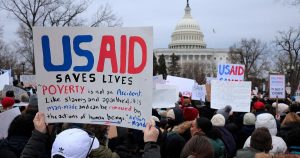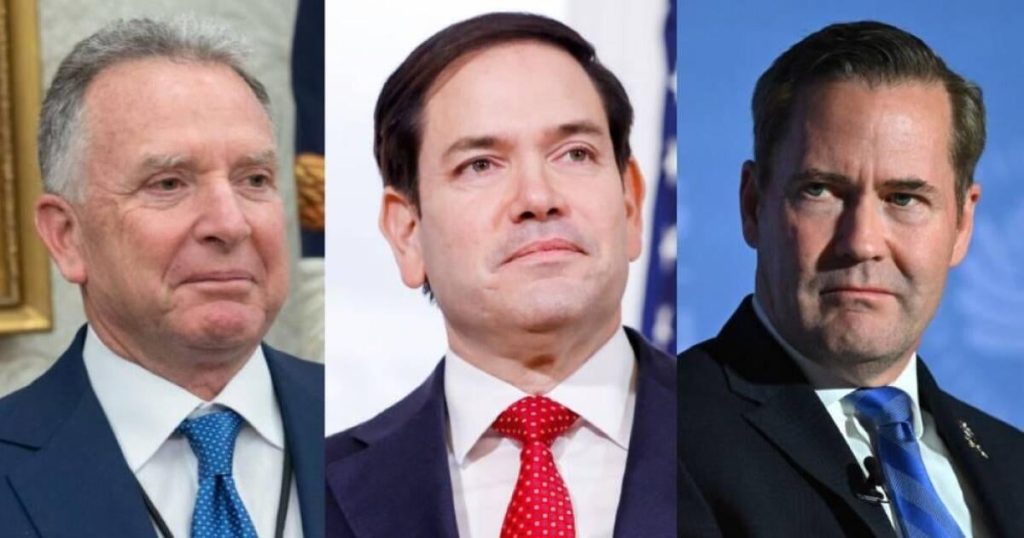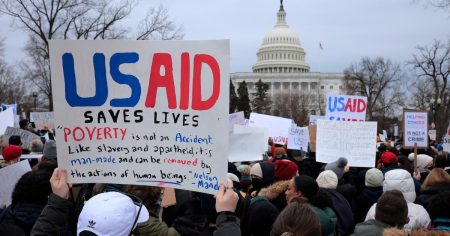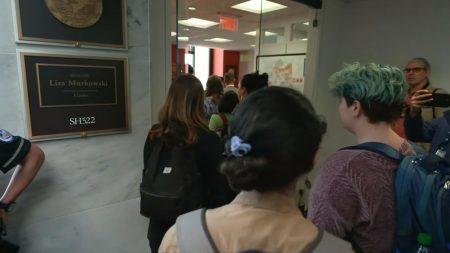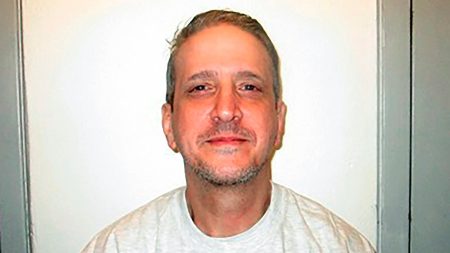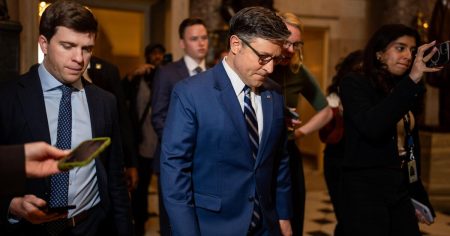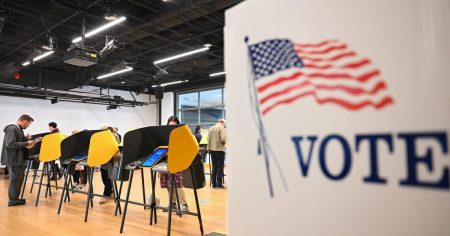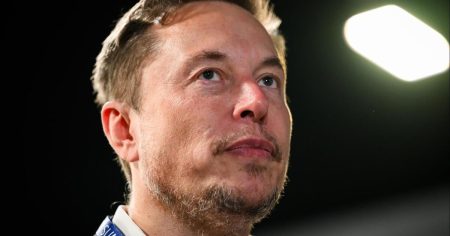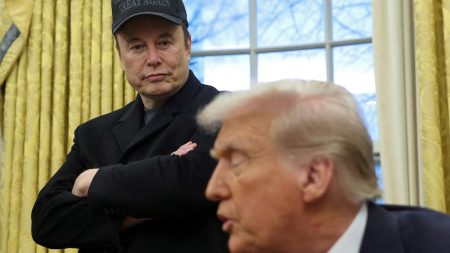A New Chapter in Diplomacy: Trump Advisers to Meet Russian Officials in Saudi Arabia
In a significant development that could mark a potential turning point in the ongoing conflict in Ukraine, a team of advisers from President Trump’s administration is set to meet with Russian officials in Saudi Arabia next week. This high-stakes diplomatic engagement aims to kickstart peace negotiations to bring an end to the war in Ukraine. According to two U.S. government officials familiar with the plans, the meeting will be led by prominent figures, including Secretary of State Marco Rubio, National Security Adviser Mike Waltz, and Steve Witkoff, who serves as Mr. Trump’s special envoy to the Middle East.
The announcement comes on the heels of President Trump’s recent phone calls with Russian President Vladimir Putin and Ukrainian President Volodymyr Zelenskyy. While the details of these conversations remain undisclosed, they appear to have laid the groundwork for this upcoming meeting in Saudi Arabia. However, it remains unclear whether Ukrainian officials will be present at the negotiating table. This raises questions about the inclusivity of the peace process and whether Ukraine’s interests will be directly represented.
Russia and the U.S.: A Delicate Dance of Diplomacy
In the run-up to the Saudi meeting, Secretary Rubio held a follow-up call with Russian Foreign Minister Sergei Lavrov. According to State Department spokesperson Tammy Bruce, Rubio reaffirmed President Trump’s commitment to ending the conflict in Ukraine. The two officials also discussed potential areas of bilateral cooperation. While this exchange suggests a willingness to engage on multiple fronts, the broader context of U.S.-Russia relations remains fraught with tension. The war in Ukraine has deepened divisions between the two nations, making any diplomatic progress a challenging but critical endeavor.
President Trump has openly acknowledged the complexities of negotiating with Russia, particularly regarding Ukraine’s aspirations for NATO membership. "As far as NATO is concerned, from many years before President Putin, I will tell you that I’ve heard that Russia would never accept that," Trump remarked. This statement underscores the long-standing opposition from Russia to Ukraine’s potential integration into the alliance, a stance that has been a point of contention since well before the current conflict.
Ukraine’s Stance: A Call for Inclusivity and Security Guarantees
Meanwhile, Ukrainian President Volodymyr Zelenskyy has been vocal about his country’s position in any peace negotiations. Speaking at the Munich Security Conference, Zelenskyy emphasized that Ukraine would not accept any deal struck "behind our backs without our involvement." This assertion highlights the deep-seated mistrust that has grown between Ukraine and the negotiating parties, particularly given the history of unfulfilled promises and broken agreements.
Zelenskyy also called for the creation of "armed forces of Europe," a proposal that reflects his concerns about the shifting relationship between Europe and the United States. This suggestion, while ambitious, indicates Ukraine’s desire to strengthen its security framework and ensure long-term stability in the region. Vice President JD Vance, who met with Zelenskyy in Munich, echoed the U.S. commitment to achieving a "durable, lasting peace" in Ukraine. However, Defense Secretary Pete Hegseth tempered expectations by suggesting that Ukraine’s hopes for NATO membership are unrealistic, given Russia’s steadfast opposition.
Challenges Ahead: The Road to Peace is Paved with Compromises
The path to peace in Ukraine is fraught with challenges, and the upcoming talks in Saudi Arabia are no exception. One of the most significant hurdles will be addressing Russia’s territorial ambitions, particularly its control over Crimea since the 2014 annexation. Defense Secretary Hegseth has cast doubt on the likelihood of Ukraine returning to its pre-2014 borders, a grim assessment that underscores the difficulty of reversing Russia’s territorial gains.
Additionally, the involvement of Saudi Arabia as a host for these negotiations introduces a new dynamic. While the kingdom has not been directly involved in the Ukraine conflict, its role as a mediator highlights the growing complexity of international diplomacy. Saudi Prince Mohammed bin Salman has reportedly encouraged the negotiations, viewing them as an opportunity to demonstrate his country’s influence on the global stage.
The Broader Implications: A Shift in Global Politics?
The potential meeting between President Trump and President Putin in Saudi Arabia adds another layer of intrigue to this diplomatic effort. While the exact timing and agenda of this meeting remain uncertain, it could signal a shift in how the U.S. and Russia engage on the global stage. The recent release of American teacher Marc Fogel, who spent three-and-a-half years in a Russian prison, has been cited as a positive step in bilateral relations. Saudi Arabia’s involvement in facilitating this release further underscores its growing role as a mediator in international affairs.
The developments in Saudi Arabia also come against the backdrop of evolving relationships between Europe and the United States. Zelenskyy’s call for the creation of "armed forces of Europe" suggests a recognition of the changing dynamics in transatlantic relations. As the war in Ukraine drags on, European leaders are increasingly weighing their options for ensuring regional security, potentially with reduced reliance on the United States.
The Human Side of Diplomacy: Hope in the Midst of Conflict
Amid the political maneuvering and strategic calculations, it is easy to lose sight of the human cost of the war in Ukraine. The stories of ordinary citizens displaced, families separated, and lives lost serve as a stark reminder of the urgency of achieving peace. The recent release of Marc Fogel, facilitated by a deal between American and Russian officials, offers a glimmer of hope that even in the darkest moments, diplomacy can prevail.
As the world watches the developments in Saudi Arabia, one thing is clear: the road to peace is long and uncertain. However, the willingness of global leaders to come together and engage in dialogue offers a beacon of optimism. Whether this effort will yield tangible results remains to be seen, but the simple act of talking is a step in the right direction.
In the words of Zelenskyy, "We will not accept a deal made behind our backs without our involvement." This statement encapsulates the spirit of resilience and determination that has defined Ukraine’s response to the war. As the international community continues to navigate this complex and ever-evolving crisis, the voices of those most affected must remain at the heart of any peace process.


